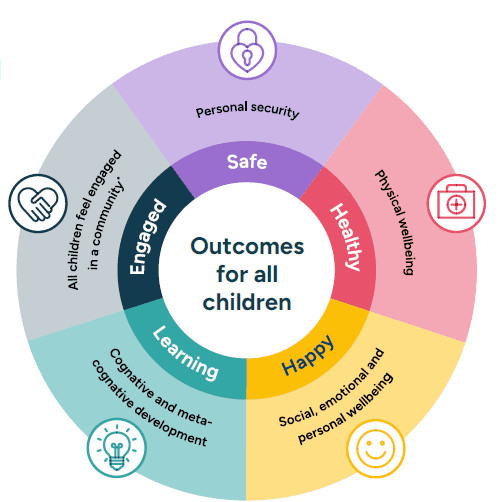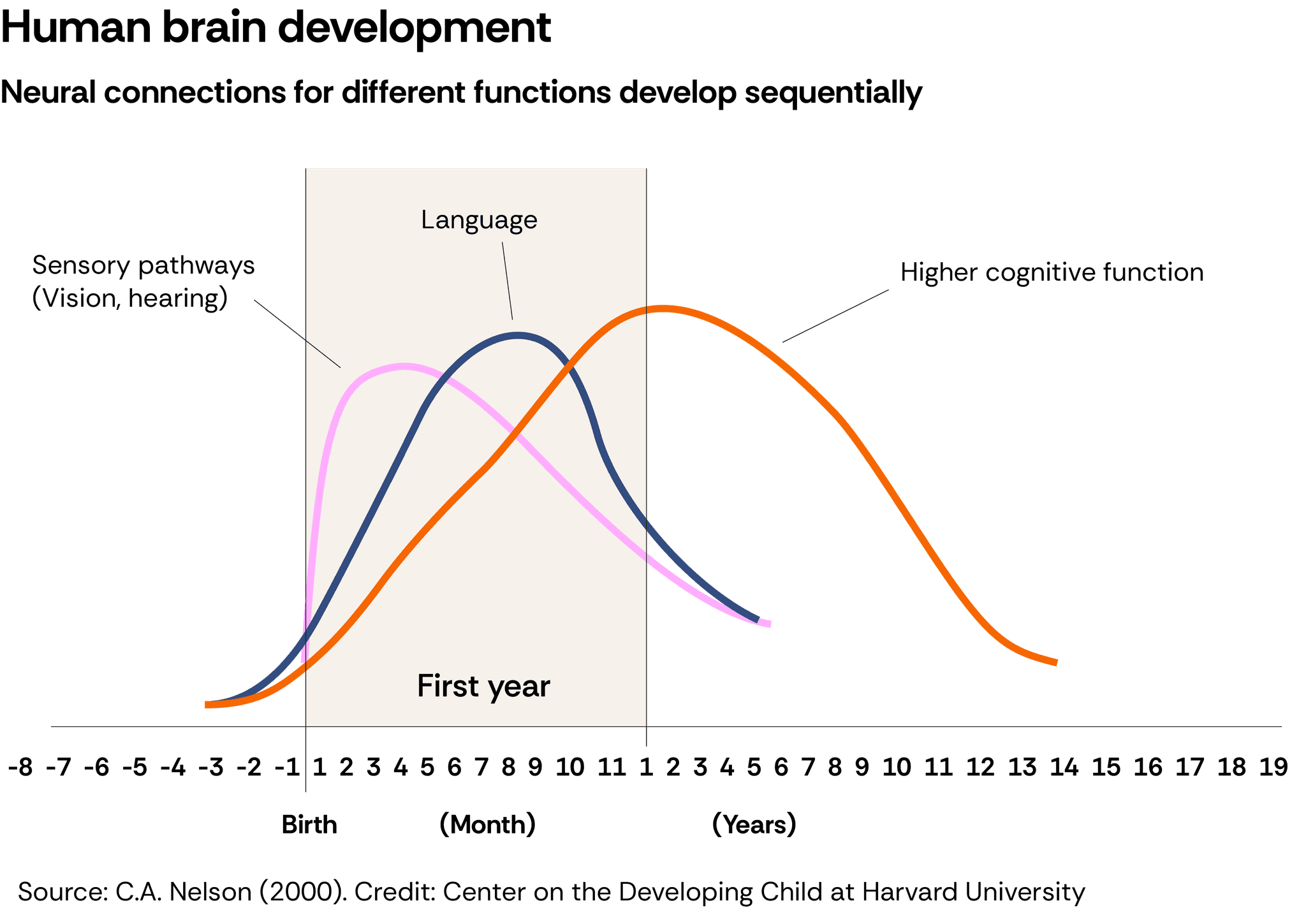What happens in early childhood builds the foundations for children's lifelong success and wellbeing.
Early intervention is more effective than trying to address issues later in life. This is because our brain is at its most receptive and adaptable when we are young, and although we continue to adapt and evolve throughout our lives, this requires more effort as we age.
Listen to “How every child can thrive by five”, a TED Talk that highlights the benefits of play on lifelong learning, behaviour and wellbeing, and shares effective research-backed strategies to help all kids thrive by the age of five.
The problem
Despite the clear benefits, the systems surrounding many babies and pre-schoolers, especially from disadvantaged backgrounds, are not providing the support they need during these critical years. Lack of access to quality early education, proper nutrition, and safe environments can hinder a child’s development. This can lead to struggles in school and later in life, making it harder for them to reach their full potential.
The inequality starts early…
At age 5, children from lower socioeconomic backgrounds are 4.6 months behind their peers – this gap widens to 19.2 months by the end of secondary school. (1)
2/5th of the disadvantage gap in secondary school is attributable to the early years. (2)
A child’s development score at 22 months can serve as an accurate predictor of education outcomes at 26 years. (3)
…and has implications on later life and future career potential
Those from higher socio-economic backgrounds are 3.4 percentage points (pp) less likely to drop-out, 5.3 pp more likely to graduate and 3.7 pp more likely to graduate with a first or 2:1. (4)
Educational inequalities translate into large future earnings differences. By the age of 40, the average UK employee with a degree earns twice as much as someone qualified to GCSE level or below. (5)
Support in the early years is often overlooked
While awareness is slowly rising, philanthropic and government funding for the first five years pales in comparison to older children – even though it’s where returns are greatest.
The opportunity
Investing in early childhood transforms life chances for children, supports families in life and into good work, and is the foundation of long-term sustained economic growth. Investments during this period yield significant returns, both socially and economically, making it one of the most cost-effective strategies for reducing inequalities and promoting sustainable development.
Support for early childhood development requires access to quality learning experiences, good health, nutrition and wellbeing, safe housing, nurturing home environments through support for parents and carers, strong communities, and tackling child poverty – so that all children can be safe, healthy, happy, learning, and engaged.




